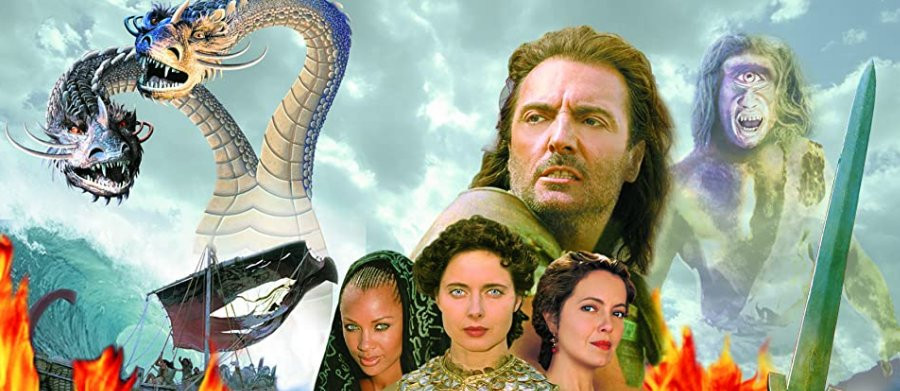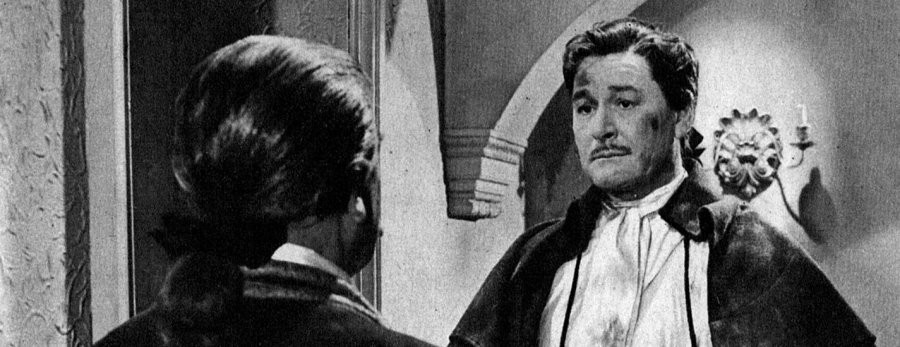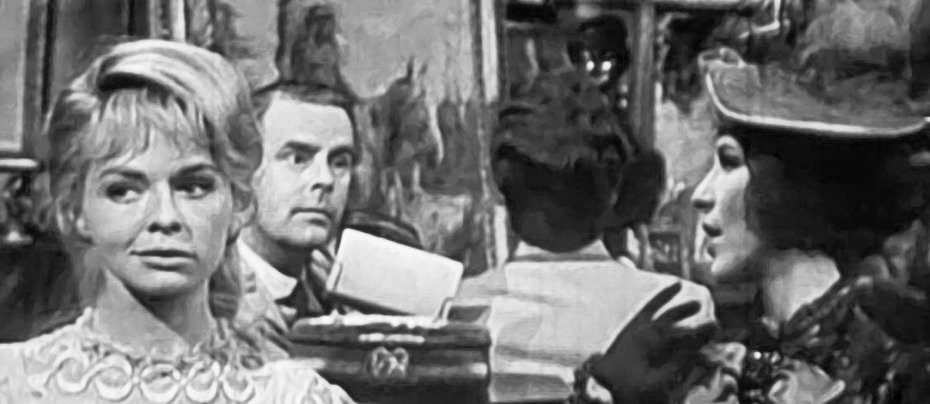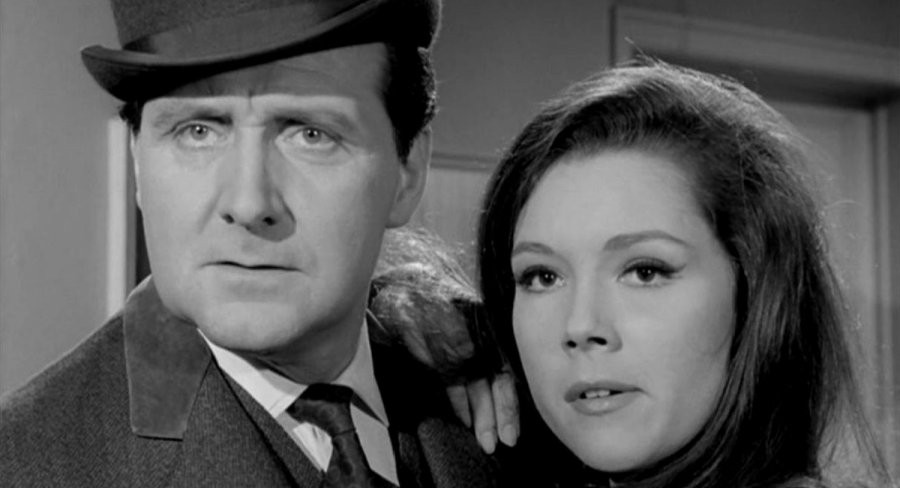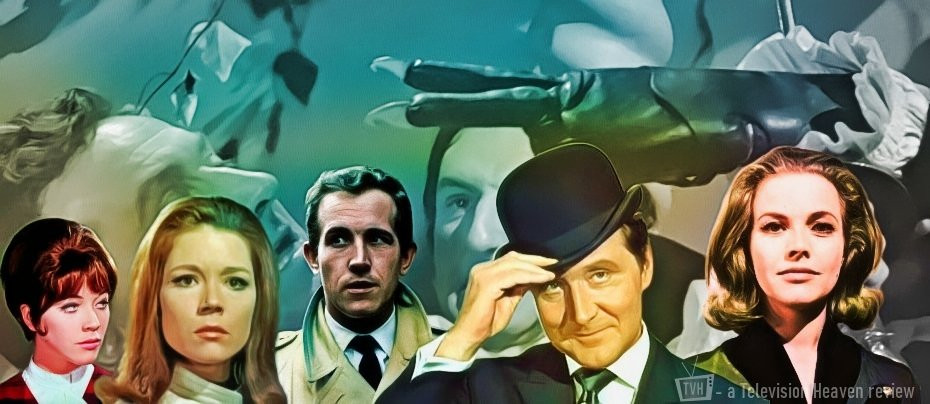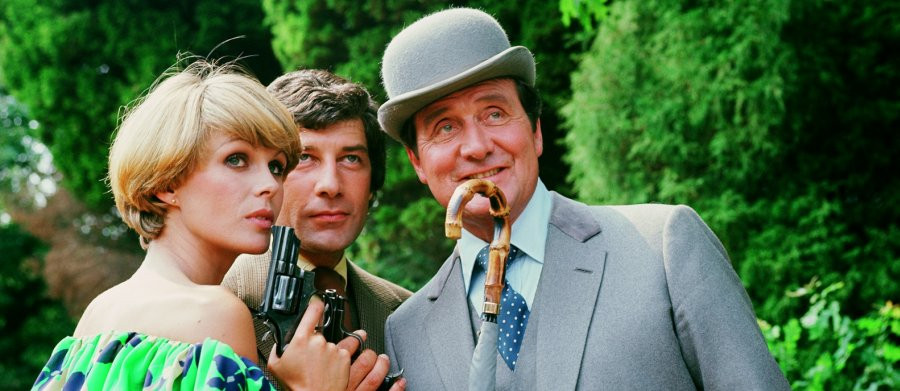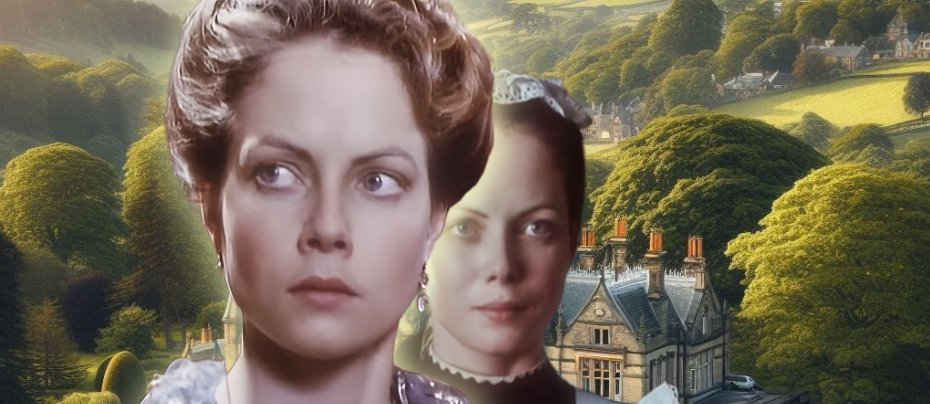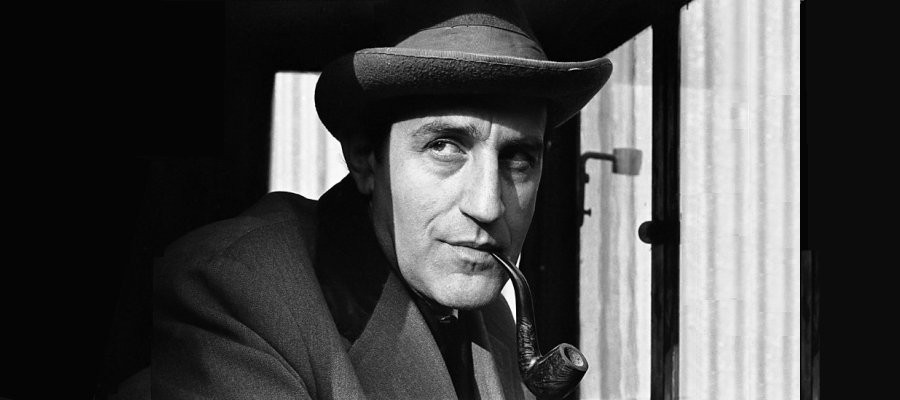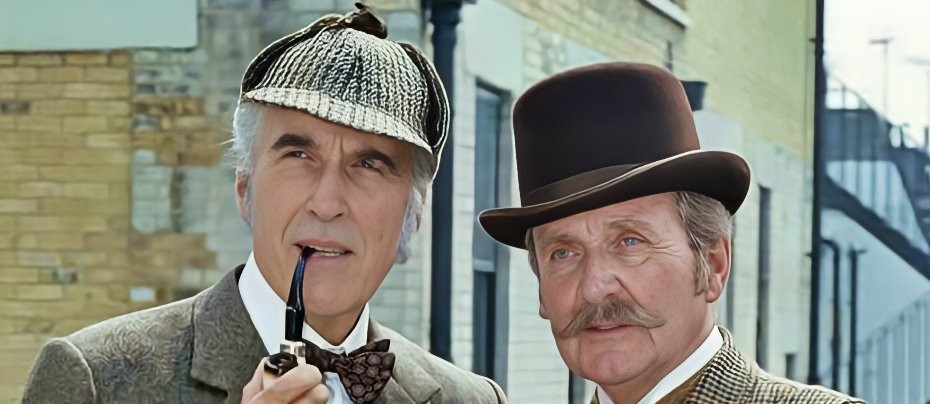
The Golden Years of Sherlock Holmes
The kindest way to describe it is erratic…
Article by John Winterson Richards
An intriguing project that eventually became two television films, Sherlock Holmes and the Leading Lady (1991) and Incident at Victoria Falls (1992), was intended originally as an eight-hour miniseries, The Golden Years of Sherlock Holmes. The basic concept, speculating on what Holmes and Watson might have been doing in their late fifties, around 1910, was a good one, if not quite in accordance with original canon which has Holmes retired in Sussex by 1904.
However, as often happens with international coproductions, there was a lack of a shared vision and no strong hand in charge. The story behind the two films might make an entertaining film in its own right. The personalities involved include a British chancer who is alleged to have pimped for John F Kennedy, a shrewd Egyptian-born American negotiator with strong South African links, and a soon to be three-term Prime Minister of Italy - yes, that one. The last two were later convicted of tax offences in relation to their mutual film and television deals. The listed production companies are really subsidiaries of their main businesses and two respectable Luxembourg Banks. There seems to have been some sort of sweetheart package to attract the production to Luxembourg, the Prime Minister, the controversial Jacques Santer, later President of the European Commission, being thanked by name in the credits.
Given that the whole thing therefore resembles a tax write off more than an artistic endeavour, it is no surprise that the production process turned into a total mess. A lengthy quote in the Internet Movie Database (IMDb) biography of the principal writer, Bob Shayne, is very illuminating, even if it is only a single perspective - and he exaggerates when he compares Sherlock Holmes and the Leading Lady with an Ed Wood film (just take a look at Plan 9 From Outer Space if you want to know what that means).
In fairness what both films demonstrate is little more than the lack of cohesion commonly associated with such international coproductions. There is a clash of styles and ways of working, as well as a wide variation in the quality of different contributions. The tragedy is that some professionals always feel obliged to make an effort even when others involved in the production obviously could not care less.
This brings us to the best reason, indeed the only reason, why both films are still worth watching in spite of their many undeniable flaws: the casting of Christopher Lee as Sherlock Holmes and Patrick Macnee as Doctor Watson.
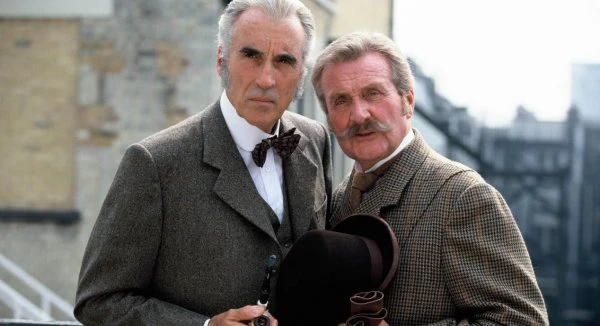
The future Sir Christopher was at this point in something of a trough in his long and remarkable career. Little able to imagine that, only a few years later, he was destined to become officially the world's most bankable film star in his eighties, one might imagine that he would welcome any opportunity to turn up for a cheque. Yet, as one of those professionals who always felt obliged to give of their best, he did not treat the role that way.
He also had a particular connection with Holmes. As befits a famous nexus in the game of "Kevin Bacon," Lee seems to have had the gift of social ubiquity, and his circle of friends had included Sir Arthur Conan Doyle's son Adrian. Moreover, Holmes had been a fairly constant presence in his early work. He had played a typically imperious Sir Henry in Terence Fisher's classic version of The Hound of the Baskervilles, in which his long-time friend and collaborator Peter Cushing had played Holmes. He later went on to redefine the role of Mycroft in Billy Wilder's wonderful The Private Life of Sherlock Holmes. He had even played Holmes himself in Sherlock Holmes and the Deadly Necklace, but that was another example of how international coproductions are often less than the sum of their parts, which in that case included Fisher again in the director's chair and Lee giving what he considered one of his best performances: he went to some pains to get back to the Holmes of the original stories only to have his distinctive voice dubbed over in the English language version. This must surely be one of the most ridiculous business decisions in history, to hire Christopher Lee and then not use his voice.
So Lee seems to have returned to the part with a sense of unfinished business. In the intervening years, Jeremy Brett had played what many purists considered the definitive Holmes on television in The Adventures of Sherlock Holmes and its successors. Lee made the wise decision not to try to compete with that and instead abandoned the quest for strict authenticity in favour of a more populist version. He even wears a deerstalker!
In many ways, Lee and Macnee return to the style of probably the best remembered Holmes and Watson, Basil Rathbone and Nigel Bruce. This reduces poor Watson to little more than comedy relief, much to the irritation of purists who know that in the books he is an intelligent and complicated character in his own right. However, it is an interpretation of proven entertainment value that plays to Macnee's talent for light comedy as demonstrated in The Avengers and he carries it off with his usual breezy charm. Lee and Macnee have an easy familiarity, which is not surprising since they had gone to the same preparatory school, where Lee generously concedes that Macnee was the star of the school plays.
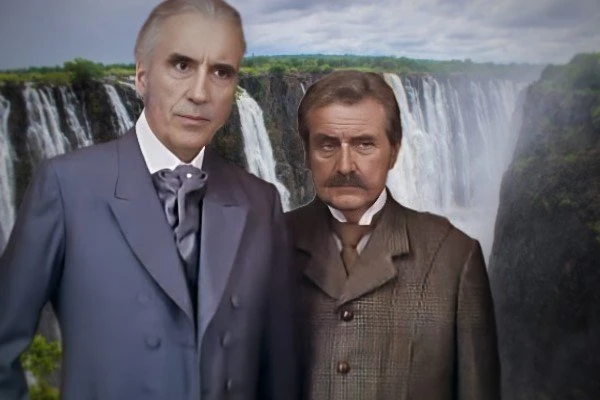
Lee is allowed a little more room for nuance and he takes full advantage of it. He gives us a surprisingly moving Holmes whose customary arrogance is shown as an attempt to cover an increasing feeling of uncertainty and self doubt as he gets older. In Sherlock Holmes and the Leading Lady, his vulnerability is revealed starkly in his interaction with Irene Adler, "The Woman," with whom he is completely out of his depth, literally clueless about love. It is in these scenes that we realise that Holmes, both this Holmes and the Holmes of the original stories, probably was a sixty year old virgin. If he is sometimes poignant in Leading Lady, in Incident at Victoria Falls he resorts more to humour to cover his mistakes. In both, but in different ways, Lee offers us a far more human and likeable Holmes than most interpretations.
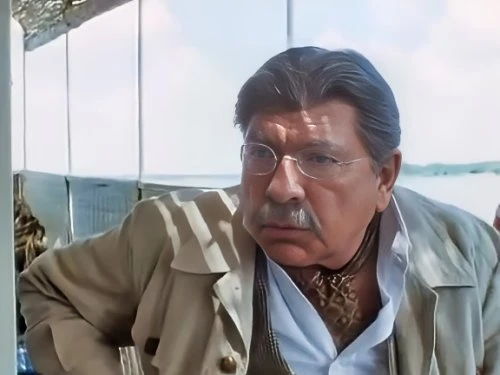
It would have been pleasant to spend more time with this Holmes - and if the rest of the project had been up to his level. The kindest way to describe it is erratic. If some of the location work in South Africa and Luxembourg, standing in effectively for Austria, is very picturesque, elsewhere there is a definite air of cheapness about the production. Most of the action scenes are risible, even if Lee and Macnee both seem quite spry for men who were actually in their late sixties, not their fifties as their characters are meant to be. That really is Lee himself riding the cowcatcher on the front of a steam train in Incident at Victoria Falls.
This variation in quality applies to the scripts written by Shayne, a veteran of American television crime drama, assisted in the first film by H R F Keating, who wrote the successful Inspector Ghote novels, in the first film and Gerry O'Hara in the second. At first the dialogue seems so bad that one wonders if it is satirical, but it does get better. If the plotting is more Dame Agatha than Sir Arthur, at least there are enough suspects and red herrings to keep us guessing. The ending of Incident at Victoria Falls is, however, unworthy of what has gone before. There is a similar huge variation in historical accuracy and fidelity to canon throughout.
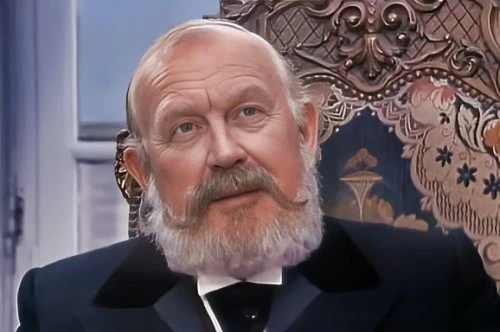
Both scripts, particularly Incident at Victoria Falls, are guilty of some shameless Edwardian name dropping, including Edward VII himself, Teddy Roosevelt, Lily Langtry, Lord Roberts, etc, mainly as an excuse to shoehorn in some familiar guest stars - Joss Ackland, Claude Akins, Jenny Seagrove, and, in his last role, Richard Todd, respectively. Morgan Fairchild is a charming and surprisingly convincing Irene Adler. However, it is Lee and Macnee who carry the project, making it far more enjoyable than it deserves - so long as one does not take it too seriously.
Published on April 24th, 2024. Written by John Winterson Richards for Television Heaven.


